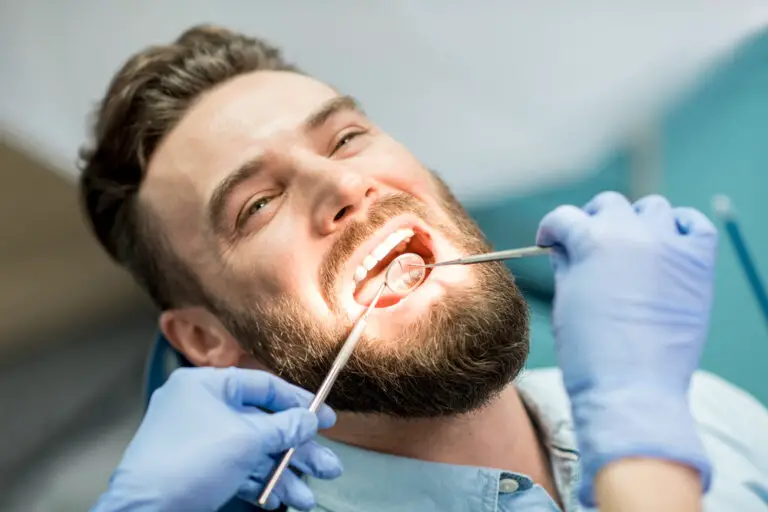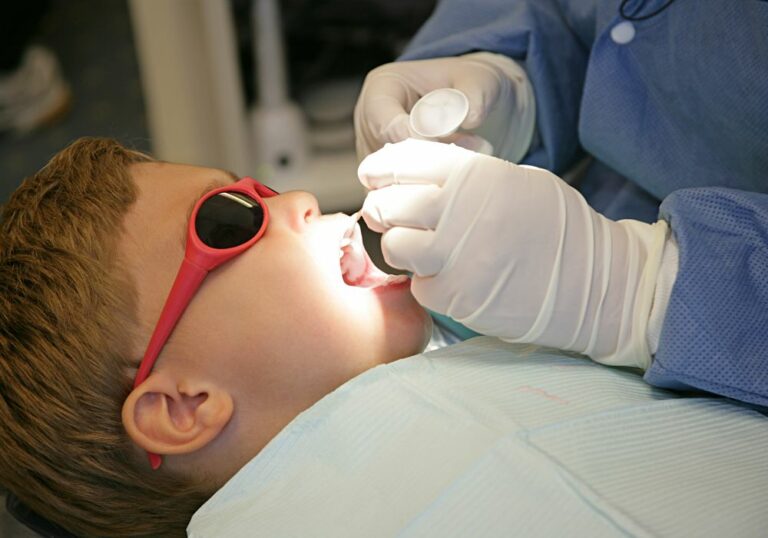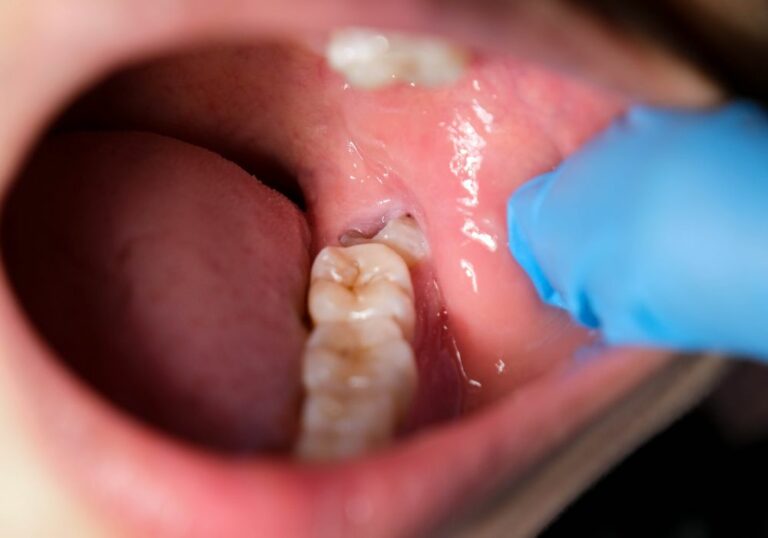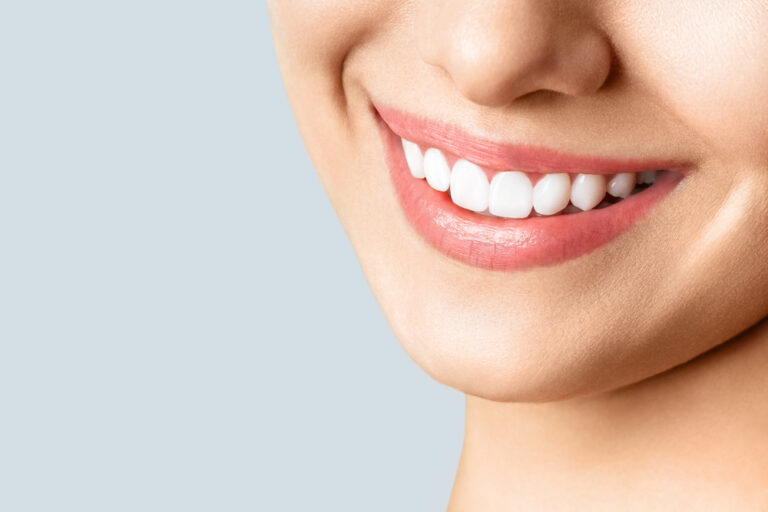Are you wondering if your 5-year-old child could be getting new teeth? It’s not uncommon for children to start losing their baby teeth around age 6, but it’s also possible for permanent teeth to start coming in earlier. In fact, some children may begin getting their first set of molars as early as age 5.
While it’s not a guarantee that your child is getting new teeth, there are some signs you can look for. Your child may complain of tooth pain or discomfort, and you may notice them rubbing their gums or drooling more than usual. It’s also possible for the new teeth to be visible in the mouth, either as small bumps or actual teeth. If you suspect your child is getting new teeth, it’s important to take care of their oral health and monitor their progress.
Understanding Your Child’s Dental Development
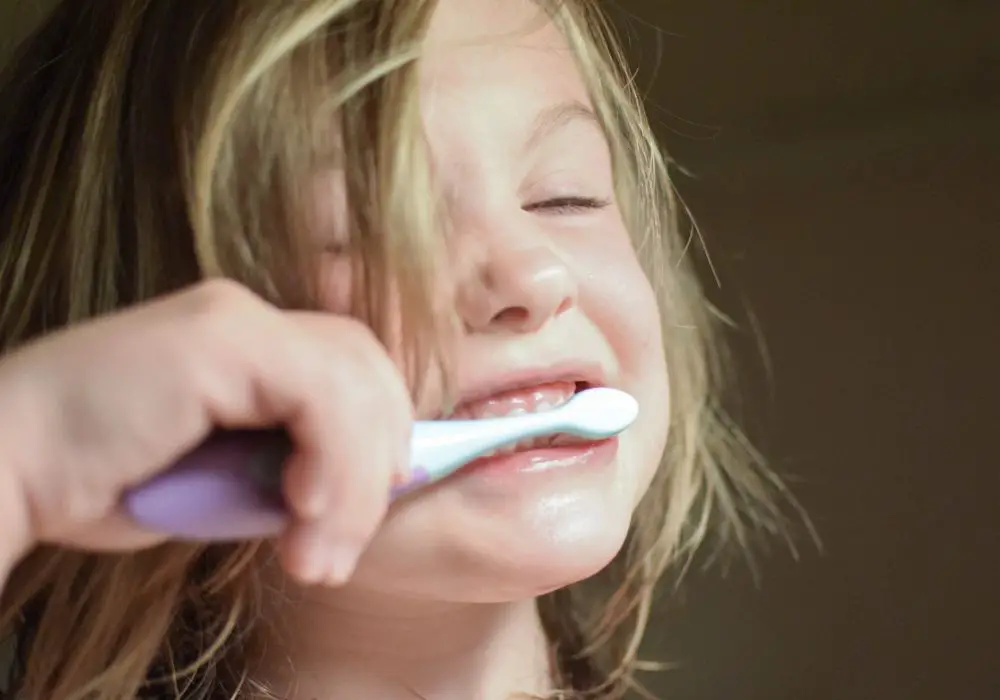
As a parent, it’s important to understand your child’s dental development to ensure their teeth are healthy and developing properly. Here are some key things to keep in mind:
The Stages of Tooth Eruption
Tooth eruption is the process of teeth breaking through the gums and becoming visible in the mouth. This process typically begins around six months of age and continues until around age three. By age three, most children have all 20 of their primary teeth.
Here is a general timeline of when you can expect your child’s teeth to erupt:
| Age | Teeth |
|---|---|
| 6-10 months | Lower central incisors |
| 8-12 months | Upper central incisors |
| 9-13 months | Upper lateral incisors |
| 10-16 months | Lower lateral incisors |
| 13-19 months | First molars |
| 14-18 months | Canines |
| 16-22 months | Second molars |
It’s important to note that these are general guidelines and every child’s development is different. If you have concerns about your child’s tooth eruption, talk to your dentist.
Late Tooth Eruption
Sometimes, children experience late tooth eruption, meaning their teeth are not coming in as expected. This can be caused by a variety of factors, including genetics, nutrition, and oral hygiene.
If your child is experiencing late tooth eruption, it’s important to talk to your dentist. They can evaluate your child’s teeth and determine if there are any underlying issues that need to be addressed.
In some cases, late tooth eruption may be a sign of a more serious issue, such as a genetic disorder or hormonal imbalance. Your dentist can help you determine if this is the case and refer you to a specialist if necessary.
Overall, understanding your child’s dental development is an important part of ensuring their oral health. By keeping track of their tooth eruption and talking to your dentist if you have concerns, you can help ensure your child’s teeth are healthy and developing properly.
Causes of Early Permanent Teeth Eruption
If your 5-year-old child is already getting permanent teeth, you may wonder what could be causing this phenomenon. Here are some possible causes of early permanent teeth eruption:
Genetics
Genetics can play a role in early permanent teeth eruption. If you or your partner had early permanent teeth eruption, there is a chance that your child may also experience it.
Nutritional Deficiencies
Nutritional deficiencies can also affect the timing of permanent teeth eruption. Lack of vitamin D and calcium, for example, can delay the eruption of permanent teeth. On the other hand, excessive intake of vitamin A can cause early eruption of permanent teeth.
Hormonal Imbalances
Hormonal imbalances can also be a factor in early permanent teeth eruption. Thyroid disorders, for instance, can cause teeth to erupt earlier than usual.
Premature Loss of Baby Teeth
If your child loses their baby teeth prematurely due to decay or injury, the permanent teeth may start to erupt earlier than expected.
Other Factors
Other factors that may contribute to early permanent teeth eruption include:
- Genetics
- Race
- Gender
- Environmental factors
- Health conditions
It is important to note that early permanent teeth eruption does not necessarily indicate a problem. However, if you have concerns about your child’s dental health, it is always best to consult a dentist.
Signs Your 5 Year Old is Getting Teeth

As a parent, you know that your child’s dental health is essential to their overall well-being. That’s why it’s important to be aware of the signs that your 5-year-old is getting teeth. Here are some common signs to look out for:
1. Irritability and Discomfort
If your child is experiencing discomfort or irritability, it may be a sign that they are getting teeth. This is because new teeth can cause pressure and pain as they push through the gums. Your child may also experience some swelling and redness around their gums.
2. Drooling
Drooling is another common sign that your child is getting teeth. This is because the increased saliva production helps to soothe the gums and make it easier for the teeth to push through.
3. Biting and Chewing
Your child may also start to bite and chew on objects more frequently when they are getting teeth. This is because the pressure can help to relieve some of the discomfort they are experiencing.
4. Changes in Eating Habits
If your child is experiencing discomfort while getting teeth, they may also have changes in their eating habits. They may prefer softer foods or avoid certain foods altogether.
5. Appearance of Teeth
Finally, the most obvious sign that your child is getting teeth is the appearance of teeth themselves. You may notice small bumps or ridges on their gums, which will eventually turn into teeth.
In conclusion, being aware of the signs that your 5-year-old is getting teeth can help you provide the necessary care and support during this important developmental stage. If you notice any unusual symptoms or have concerns about your child’s dental health, be sure to consult with a dentist.
Handling Teething: Tips and Tricks
Teething can be a challenging time for both parents and children. If your 5-year-old is experiencing teething symptoms, here are some tips and tricks to help ease their discomfort:
- Use a clean finger or wet gauze to rub your child’s gums. The pressure can ease their discomfort.
- Keep it cool. A cold spoon or chilled teething ring can be soothing on your child’s gums. Be sure to avoid frozen items as they can cause harm to the gums.
- Offer your child something to chew on. A firm rubber teething toy can provide much-needed relief.
- Provide your child with cold drinks and foods. Popsicles, smoothies, and chilled fruit can help numb the gums and provide comfort.
- Consider using over-the-counter remedies. There are a variety of teething gels and tablets available that can help alleviate pain and discomfort.
It’s important to note that teething symptoms can sometimes be mistaken for other issues, such as ear infections or tooth decay. If your child’s symptoms persist or are severe, it’s best to consult with a pediatrician or dentist to rule out any underlying issues.
Remember, teething is a natural process and while it can be uncomfortable, it’s a sign that your child is growing and developing. With a little patience and some simple remedies, you can help your child get through this phase with ease.
When to Consult a Dentist
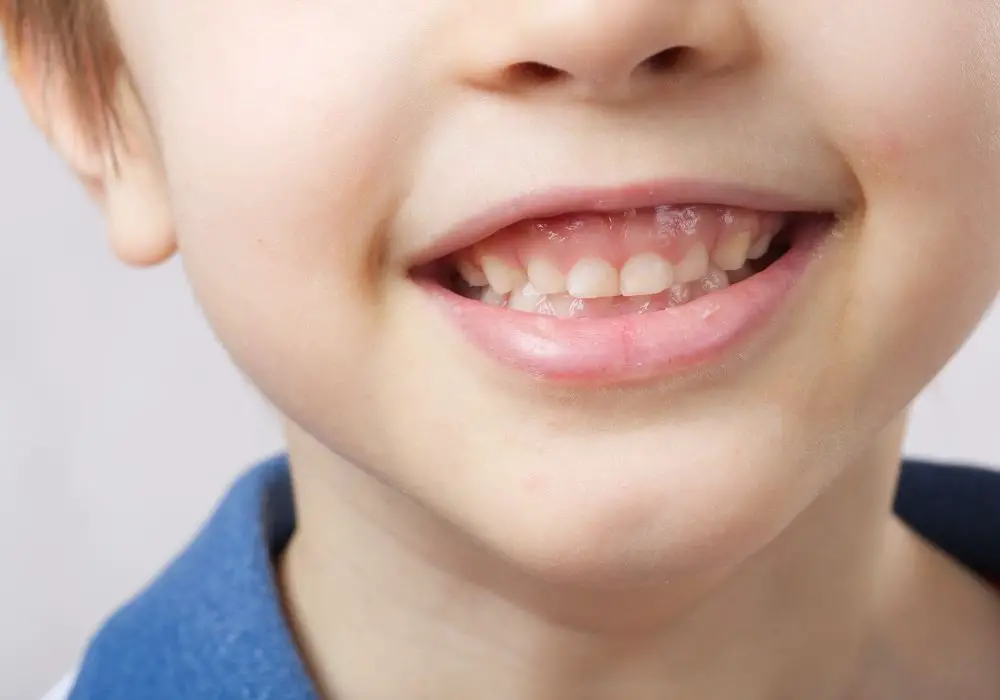
It is important to take your child to the dentist regularly, even if they seem to have healthy teeth. Here are some signs that you should make an appointment with a dentist for your 5-year-old child:
- Tooth Pain: If your child is experiencing tooth pain, it is important to take them to the dentist as soon as possible. Tooth pain can be a sign of tooth decay or other dental problems that need to be addressed by a professional.
- Bleeding Gums: If your child’s gums are bleeding, this could be a sign of gum disease or other dental issues. Make an appointment with a dentist to have their gums evaluated.
- Difficulty Chewing or Swallowing: If your child is having trouble chewing or swallowing, it could be a sign of dental issues such as cavities or infections. A dentist can evaluate the issue and provide treatment options.
- Jaw Pain: If your child is experiencing jaw pain, it could be a sign of a dental problem such as a misaligned bite or temporomandibular joint disorder (TMJ). A dentist can help diagnose the issue and provide treatment options.
- Irregular Teeth: If your child’s teeth are growing in irregularly or if they have lost a tooth prematurely, it is important to consult with a dentist. The dentist can evaluate the issue and provide treatment options to ensure that your child’s teeth grow in properly.
Overall, it is important to take your child to the dentist regularly and to consult with a dentist if you notice any issues with their teeth or gums. By addressing dental issues early on, you can help ensure that your child has healthy teeth and gums for years to come.
Frequently Asked Questions
What are the symptoms of molars coming in?
Molars coming in can cause discomfort, pain, and swelling in the gums. Your child may also experience drooling, irritability, and difficulty sleeping. Some children may also develop a low-grade fever.
At what age do the back molars typically come in?
Back molars, also known as second molars, usually come in between the ages of 11 and 13 years old. However, some children may experience them earlier or later.
How long does it take for permanent teeth to come in?
The time it takes for permanent teeth to come in can vary. Generally, permanent teeth begin to erupt around the age of 6 and continue until the late teenage years. The process can take several years, but it’s important to note that each child is different.
What are the signs that my child is teething?
The signs of teething can include drooling, irritability, difficulty sleeping, and a desire to chew on objects. Your child may also experience discomfort or pain in the gums, and you may notice swollen or red gums.
Which teeth typically fall out at age 5?
At age 5, your child may begin to lose their front teeth, also known as incisors. These teeth are usually replaced by permanent teeth around the age of 6 or 7.
Can children still be teething at 5 years old?
While most children finish teething by the age of 3, some children may continue to experience teething symptoms until the age of 5 or 6. It’s important to monitor your child’s symptoms and consult with their dentist if you have concerns.

